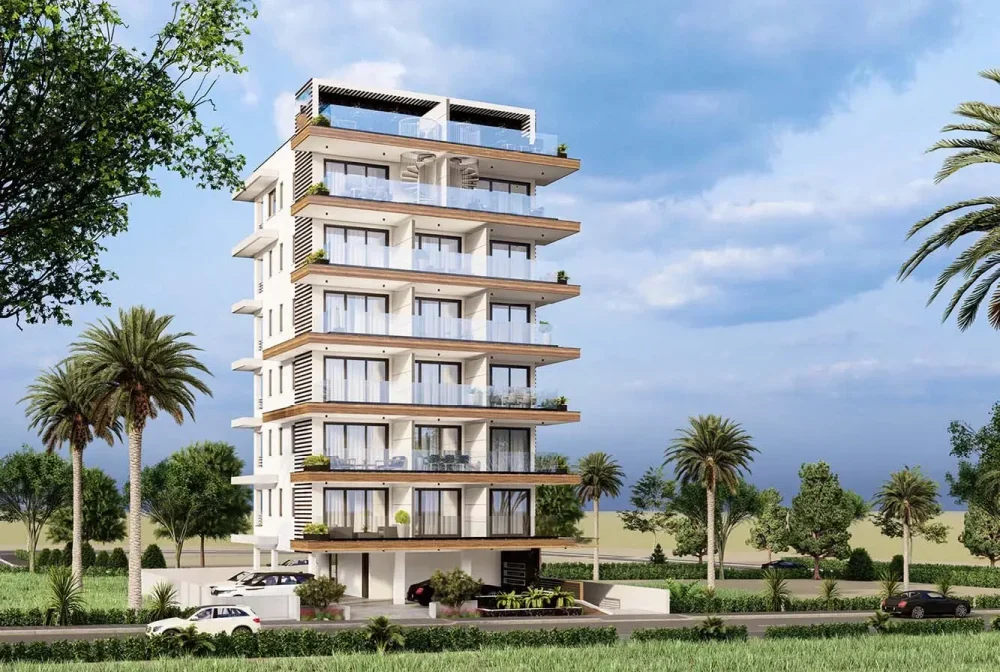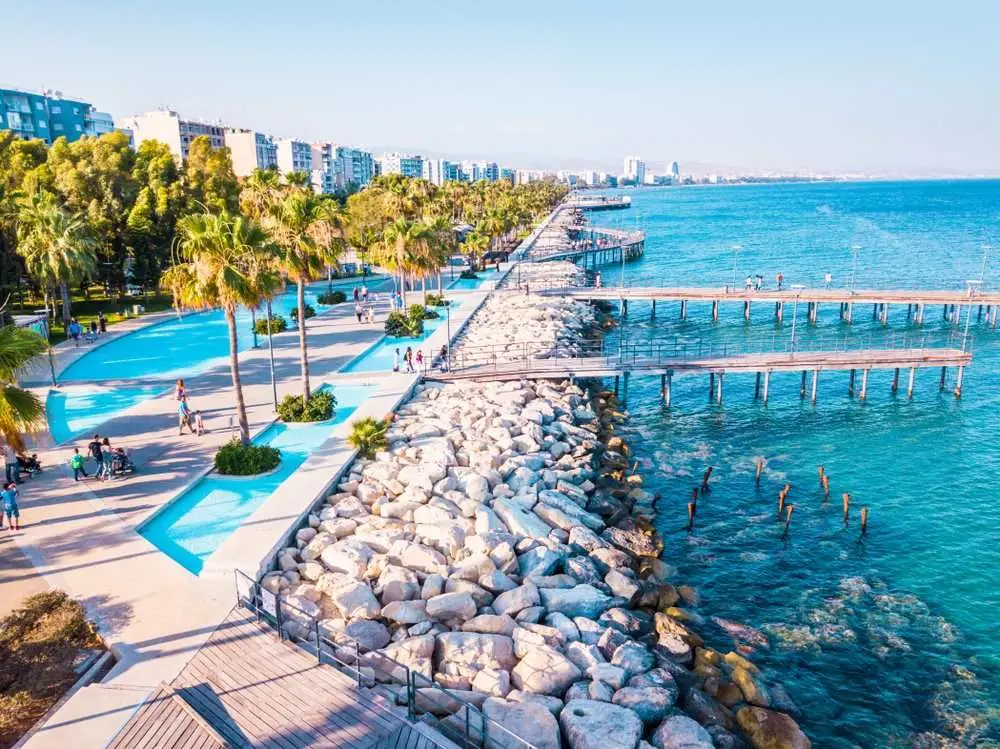Greece is a country with thousands of years of history, an azure sea and an incredible variety of regions. From bustling Athens to the tranquil islands, every corner of the country has its own rhythm, climate and opportunities, including prices. Choosing the right location to live in such an environment is not an easy task. Our article is designed to help you in this difficult endeavour. We will tell you about the best cities in Greece to live in.
Athens and Attica: the pulse of the country
Attica concentrated finance, culture, international schools and major medical centres. Athens is not just the capital, but the centre of gravity of Greek land. Here, Greek property provides liquidity and the market is steadily rising: over the past three years, prices have increased by an average of 12-17% by district.
The centre – Plaka, Kolonaki, Metz – offers housing at €2,500-4,000 per m². Dormitory neighbourhoods – Perama, Ilioupoli – start at €1,500. Attica remains attractive for relocation due to its mild climate, access to the sea, metro and stable social environment.

A key feature is direct air links to Europe, the USA and Asia. This makes Athens an entry point into the country and a comfortable base for obtaining a residence permit in Greece through investment.
Thessaloniki: a northern vector of opportunity
 Thessaloniki is the second metropolis of the country and the centre of the Macedonia region. It is listed as one of the “best cities in Greece to live in” due to its combination of cultural heritage, university environment and low prices. The average cost is around €1,800 per m², with rents yielding stable returns of up to 5.6% per annum.
Thessaloniki is the second metropolis of the country and the centre of the Macedonia region. It is listed as one of the “best cities in Greece to live in” due to its combination of cultural heritage, university environment and low prices. The average cost is around €1,800 per m², with rents yielding stable returns of up to 5.6% per annum.
The city is aimed at active young people and those seeking a balance between the metropolis and a measured life. Transport is developed by the new metro, the coastline overlooks Termaikos, and the evening promenade turns working days into an easy holiday resort. Thessaloniki is actively developing IT and tourism – creating jobs and demand for accommodation.
Islands as a lifestyle: from Corfu to Santorini
The island part of the country offers not just climate and scenery, but a special rhythm – measured, aesthetic and investment-conscious. Here property is not only a roof over your head, but also an asset with predictable returns. Each island forms its own image: from green cosiness to elite status.
Corfu
The green island in the Ionian Sea is on the list of “Greece’s best cities to live in”. A combination of nature, British architecture and high rental demand. Prices start from €1,700 per m² and rental yields of 9-11% in high season.
Crete
The largest island in the country with developed infrastructure, international schools and clinics. Heraklion and Chania, the two main cities, are actively developing new residential projects. Crete utilises a combination of climate, transport accessibility and a strong economy. Property in Crete in Greece remains one of the most sought after.
Rhodes
Europe’s sunny island is a stable investment. The cost of housing grows by 8-10% annually. The east coast remains the leader in the number of transactions. The combination of ancient architecture, developed tourism and proximity to Turkey makes Rhodes strategically attractive for buying a home.
Santorini
Unique geology, whitewashed buildings, volcanic landscapes. Santorini doesn’t fall into the “affordable housing” category, but it’s firmly on the list of the country’s best cities to live in. For those looking for status, not just a view. Prices start from €4,000 per m², but the liquidity of the object is maintained even in the crisis.
Beaches and infrastructure: where to live in Greece
The choice of region determines not only everyday life, but also access to key services. Below is the only list in the article with selection criteria:
Five factors that determine the best cities to live in:
- Climate – 300 days of sunshine a year on Crete, minimal humidity on Rhodes, cool breezes on Corfu.
- Sea and beaches – Halkidiki holds the lead with 92 Blue Flag beaches.
- Infrastructure – Athens and Thessaloniki lead the way in the number of medical centres and English language schools.
- Property prices range from €1,200 to €4,500 per m² depending on location and type of accommodation.
- Residence permits – available for purchases from €250,000, programmes have been running steadily since 2014.
Halkidiki: synergy of nature and comfort
Halkidiki unites three peninsulas – Kassandra, Sithonia and Athos. The first is a tourist centre, the second is a secluded green paradise, the third is a monastic autonomy with restrictions. The best towns to live in this region are Nea Mudanya, Pefkohori, Nikiti. Housing prices start from €1,400 per m². This makes buying affordable for private investors and families planning to relocate.
The region takes advantage of picturesque bays, coniferous forests and crystal clear sea. Villas with panoramic windows, apartments by the sea and houses with swimming pools are being built here. The area is popular with families due to its quietness, safety and proximity to Thessaloniki – 1.5 hours by car.
Where to buy property in Greece without overpaying
When choosing a destination, it is important not to overpay for a brand, but to calculate profitability and potential. Greece’s regions for living are not just the coasts. Epirus and Thessaly offer houses among the mountains and lakes with prices starting from €900 per m². In the Peloponnese builders are creating settlements with autonomous infrastructure – schools, shops, kindergartens.

Where is the best place to live in Greece is a question of balance. Patras is a ferry hub with a university atmosphere. Volos – a city with direct flights to Europe. Trikala – a leader in the digital environment and the country’s “smart city”. These locations rarely appear in tourist brochures, but are on the list of the best cities to live in for those who value tranquillity and autonomy.
Moving and calculating: the best cities in Greece to live in
The minimum budget for obtaining a residence permit in Greece through the purchase of property is €250,000. For this amount you can buy an apartment in Thessaloniki, a townhouse in Attica or a house in Corfu. Transaction costs are on average 7-10% of the value (taxes, notary, lawyer, registration).
Property prices in Greece are growing moderately. Over the past 12 months, the average increase according to the Bank of the country was 10.3%. The main growth is observed in Athens, Chania and Rhodes. Against this background, the market remains stable, especially in the context of European inflation.
For long-term residence, not only the budget is important, but also the structure of demand. If there are tenants, property yields 3.5-7% per annum. Demand is growing for housing with autonomous heating, terraces and solar panels – such options pay off faster.
The best cities in Greece to live in: conclusions
 Buying property here is not just an investment, but a choice of everyday style. Greece’s best cities to live in offer comfort, growth potential and stability. Athens gives rhythm, Thessaloniki gives balance, Halkidiki gives tranquillity, Crete gives autonomy and Santorini gives prestige. The country is open to those who want to invest, relocate or obtain a residence permit. Proper selection of the region and analysing the infrastructure make the purchase a strategic step rather than a risk.
Buying property here is not just an investment, but a choice of everyday style. Greece’s best cities to live in offer comfort, growth potential and stability. Athens gives rhythm, Thessaloniki gives balance, Halkidiki gives tranquillity, Crete gives autonomy and Santorini gives prestige. The country is open to those who want to invest, relocate or obtain a residence permit. Proper selection of the region and analysing the infrastructure make the purchase a strategic step rather than a risk.
 en
en  de
de  ar
ar  es
es  nl
nl  hi
hi  fr
fr  it
it  pt
pt  el
el 









